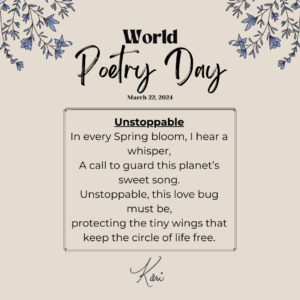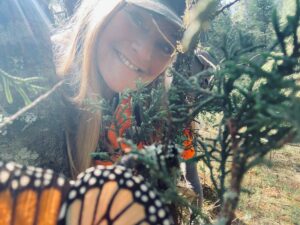Here are 7 ways to stay safe while abroad in the face of ongoing tragic incidents involving exposure to toxic insecticides at vacation properties.
Ants, roaches, beetles, bed bugs. Infestations of any of these creepy crawlers are in the nightmares of every vacation property manager around the world — and guests don’t like them very much, either. Cleanliness is one of the most important factors for travelers when choosing a place to stay and that includes proper pest control. In fact, 71 percent of those who research online reviews expect above-average cleanliness and pest-free ratings when making decisions.
Health concerns for travelers should not only be about cleanliness and avoiding pests – it should also be about pest control methods used to keep pests out. No one wants to come home from vacation with bed bug bites, or even worse, bed bugs themselves, diseases from contaminated roaches or a virus such as malaria or dengue, spread by an infected mosquito (mosquitoes suffer no ill effects from these viruses). Pesticides, as part of an Integrated Pest Management (IPM) program are essential to protecting public health. So it comes as no surprise that pest control products and services worldwide is an 18 billion-dollar industry and is projected to grow to $28 billion by 2026. Lack of regulation of the chemicals used in this industry should be front-of-mind for everyone.
Although pesticides and professional pest control services and products are well-regulated in the US and Canada, this protection does not extend to pesticide use in private rental homes or pest control in other countries. The US and Canada thoroughly evaluate pesticide risk and as such, have prohibited the use of many poisonous, highly toxic chemicals used as pesticides. This may not apply to other countries, particularly those in areas with high transmission rates of vector-borne diseases such as dengue or malaria. Highly toxic organochlorides (such as DDT banned in the US in 1972, fifty years ago) or organophosphate pesticides also banned in the US, but are still used in some international countries. This combined with an inadequate amount of applicator oversight may mean travelers are exposed to these chemicals.
Symptoms of OCs (organochlorides) or OPs (organophosphates) pesticide poisoning include increased saliva, tear production, diarrhea, nausea and sweating among other symptoms and could be confused with sun poisoning or food poisoning. Severe symptoms could result in brain injury or death.
Death by pesticide in the headlines
Not all undesirable pests spread disease.
There have been many “unexplained” incidents of severe illness and death involving travelers who’ve stayed at certain vacation properties over the years – all allegedly related to pesticides. The most recent was at the Sandals Emerald Bay resort in Great Exuma, Bahamas in early May of 2022, when three Americans died and one suffered severe illness after some vacationers complained of a strong, possible, insecticide odor.
Methyl bromide was successfully used as a fumigant in the U.S. for 23 years (1961 – 1984 MBgen.pdf (orst.edu) for reference) to manage stored food product pests and structural pests (termites and wood-destroying beetles). As insecticide resistance damaged the ozone layer and put residents at risk due to lack of safe uses became more common, the EPA decided to cancel the registration. In addition, the EPA established stricter processes for pest control companies who want to use fumigants. Fumigants are now only available to companies with restricted pesticide use certifications. Fumigant manufacturers have beefed up label language and technical support to ensure fumigants are used as safely as possible by requiring security presence while a structure is being fumigated and by ensuring no living animals are present in the structure prior to starting the fumigation process. Tragic accidents have occurred when the fumigants are not explicitly used as directed. This requires extensive training for all personnel involved in fumigation work. If a pest control company does not properly seal a structure (or a unit in a structure) the highly toxic fumigant may leak into neighboring occupied areas.
“These tragic incidents never should have happened” said JKE. Fumigants are highly regulated products, can only be sold to restricted pesticide use license holders and require extensive training prior to application and sometimes even security personnel* to prevent accidental entry into a structure undergoing fumigation. There are NO safe pesticides, everything is poisonous if improperly used – even water. And while it would be extremely difficult to achieve a toxic dose of Earthkind’s repellents, it is not impossible. The key is to use products as directed on the label in a judicious manner as part of an IPM program.
* This was implemented after would-be burglars attempted to enter a fumigated treated structure and died as a result of this attempt.
In 2019, after three Americans died at a resort in the Dominican Republic, a Colorado couple filed a lawsuit against the owners of Grand Bahia Principe Hotel La Romana, claiming they became violently ill due to exposure to pest control chemicals that had been sprayed on palm plants covering air conditioners directly outside of their room. After enduring a painful trip home, the couple’s doctor informed them that they could have been exposed to organophosphates.
According to the National Center for Biotechnology (NCBI): “OPs are chemical substances produced by the process of esterification between phosphoric acid and alcohol. These chemicals are the main components of herbicides, pesticides, and insecticides. OPs are also the main components of nerve gas. Acute or chronic exposure to OPs can produce varying toxicity levels in humans, animals, plants, and insects.”
Worldwide, about three million people are exposed to organophosphates per year and 10% die from this exposure, according to the NCBI. The Colorado couple reported that they experienced severe sweating, drooling, stomach pain, and nausea among other symptoms while guests at the Dominican Republic resort.
During their stay at the Sirenusa Condominium resort in St. John, Virgin Islands in 2015, a Delaware family was poisoned by the highly toxic chemical methyl bromide, banned by the U.S. Environmental Protection Agency in 1984. Though the ban extended to U.S. territories, Terminix was still using it for pest control at the Virgin Islands’ resort in 2015.
“We have confirmed that the problem is indeed methyl bromide,” said Judith Enck, the EPA’s regional administrator at the time in New York City, which has jurisdiction over the U.S. Virgin Islands. “Methyl bromide is a potent neurotoxin. It’s a gas. It can cause convulsions, coma, cognitive deficits, and inflammation of the lungs. A lot depends on how much a person is exposed to and for what period of time.”
What can you do to avoid pesticide poisons while abroad?
When outdoors, pregnant women and children are at greater risk of chemical exposure when using insect repellents that come into contact with the skin; so it’s important to use products that have been US EPA reviewed for safety, such as EarthKinds’ Stay Away® Mosquitoes Insect Repellent, an unscented skin-friendly spray lotion that’s been reviewed for safe use on pregnant women and children.
EarthKind, Inc. is a company that manufactures plant-based pest prevention products. Our guaranteed effective, botanical pest repellents keep homes free from rodents, ants, spiders and moths, especially when combined with our preventative tips.
Travelers must ask the right questions. Here are the questions you want to ask to minimize your potential exposure to unnecessary pesticides while traveling.
-
1) Ask the pest control company that’s been hired by a vacation property to verify its licensing. A licensed pest professional understands the correct handling of pesticides, and treatment rates necessary for targeted pests. Unlike the average homeowner, a trained professional knows the adage “more is better” does not apply to the efficacy of pesticides or the company’s bottom line. You can verify the licensing of technicians by calling your state pesticide regulatory office (or checking on their website). You can also find out about violations, complaints, or unresolved issues this way.
2) Does the company have a degreed or board certified (BCE) entomologist on staff? An entomologist will stay current on proper pesticide usage, ensure that their technicians are fully trained and aware of environmental and biological factors affecting the pest populations in that area.
3) Does the company rely on Integrated Pest Management? This is the most responsible approach to pest control, in which the technician utilizes a variety of techniques to reduce the need for chemical use.
And, do your own research:
-
1) Do as much research as you can when searching for a vacation property. Read online reviews and make sure there are no complaints regarding pests or methods of controlling them.
2) If you are visiting another country, find out which government agency oversees pesticides. Every country has one. Some are more vigilant than others.
3) Call the local better business bureau to be sure there have been no complaints about the vacation property or the pest control service they are using.
4) Do a quick inspection before hunkering down. Are there blood stains on the mattress? Does it smell like chemicals? Do you see multiple insects indoors? Do not panic if you find one or two.
While governments around the world are still playing catch-up with regulations regarding poisonous chemicals still being used in pesticides in the face of continuing tragedy, it’s important to follow these steps. After all, you want a vacation to be all about paradise – not paradise lost.
For more information on pesticides and their safe use, here are two great sources:
National Pest Management Association
National Pesticide Information Center
Poison control centers offer a free, confidential 24-hour telephone line (1-800-222-1222) where people can get medical advice on poisonings. You can also access:
to get information about what to do if someone has come into contact with a poison.


